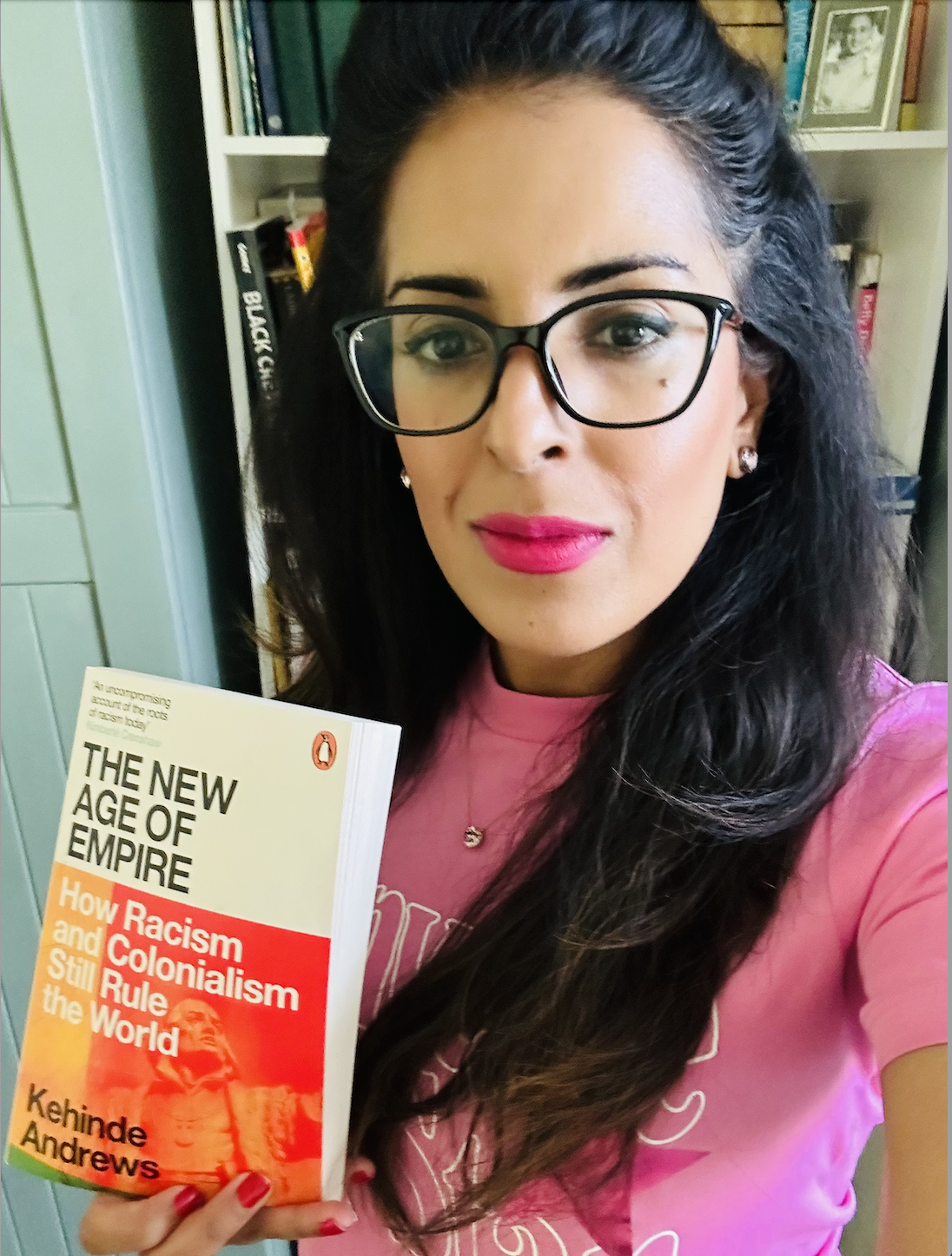Review: The New Age of Empire
The New Age of Empire by Kehinde Andrews is a powerful book highlighting “How racism and colonialism still rule the world.”
People should not be fooled into thinking that we are in a better place despite more visual diverse representation and people of colour in senior roles, according to Andrews.
“As long as we delude ourselves with rebranding and tinkering in the margins, we will never be able to address the issue of racism.”
Racism is still alive and kicking as portrayed by Andrews in this book.
Andrews explains the history of racism and colonialism, and describes Enlightenment as a time in the mid-eighteenth century when ideals of liberty, equality and fraternity were becoming popular. These ideals led to the French revolution for example. However, in this book Andrews also highlights how the Enlightenment theory is inextricably connected to white supremacy. Enlightenment is the foundation of western thought and the structure of the modern western world and Andrews argues it is based on racism and inequality.
He says: “Enlightenment emerged at a time when Europe had laid waste to much of the world through genocide and slavery and was asserting its dominance through colonial expansion.”
The western thinkers that produced all these philosophical ideals and are revered so highly in the west, were at the core racist and believed in white people being the superior race states Andrews. These men may have written about the ideals of equality and humanity, but this was based on a hierarchy with white people being on the top. It was also a moral tool to justify colonialism and oppression across the world.
“Understanding how the Enlightenment and racism cannot be separated is the first step in truly appreciating that colonial logic still governs the world today.” says Andrews.
Andrews is all too aware how such direct statements are threatening to institutions who are invested in leaving the system as it is. “It is a heresy to question the dead white man who came up with this because their bodies of work, are at the foundation of the current and your social order. To push them aside, would lead to the system crashing down.”
Even our framing of human rights is also based on inequality, as many times there is a hierarchy of whose rights are more important. Andrews states: “All the founding text upon which the human rights framework was built were designed as the rights of White men.”
From racial sciences which were to prove the superiority of whiteness, the western world moved onto Enlightenment. Andrews writes: “It (Enlightenment)then provided the intellectual bridge to the new age of Empire, which maintains colonial logic but has closed its self in the legitimacy of democracy, human rights and universal values.”
In fact, Andrews also puts the accountability of genocide in the world at the door of western civilisation. He gives example of the eradication of the native Americans, Aborigines and more recent genocides such as the Holocaust. “We need to trace how genocide, slavery, and colonialism all the key foundation stones upon which the West was built.”
“In truth, the West was birth by genocide and relied on the slaughter of millions of Black and Brown bodies to develop and enrich itself.” says Andrews.
The West made its money on the backs of people of colour: “It was the wealth produced from the Atlantic system that propelled the West to the position it is in today.” And ever since so-called emancipation, the west continues to exploit people of colour through an oppressive system and its legacy.
Sadly the mess that was created by colonialists has caused problems all around the world. However, these complex issues are landing on their doorstep. “Chickens coming home to roost’, the inevitable conclusion where the logic of imperialism returns to wreak havoc at home,” says Andrews.
Andrews talks about racism and Islamophobia driving the pro-Brexit vote. The idea of making Britain great again became a romaticised idea, but Britain was only ‘great’ when it was robbing others. There is also an amnesia about how non-white people arrived on these shores. “Alternate intellectual, Ambalavaneer Sivanandan put it, ‘we are here because you were there.’”
The anti immigration and anti-foreign logic is completely misplaced. Andrews says: “Colonial subjects were born in Britain, not outside it. Our blood, sweat blood, sweat and tears lay at the foundation of British progress.”
The impact of colonialism and slavery is still everywhere, even in Britain. Andrews states: “Diversifying those dining on the spoils of empire, does not change the menu and there is nothing new about some Black and Brown people taking advantage of a framework designed to exploit them. In other words, a handful of rich Nigerian student, studying at Oxford does not change the system of oppression.”
There is so much more detail in the book, and it is a very interesting and eye-opening read.

